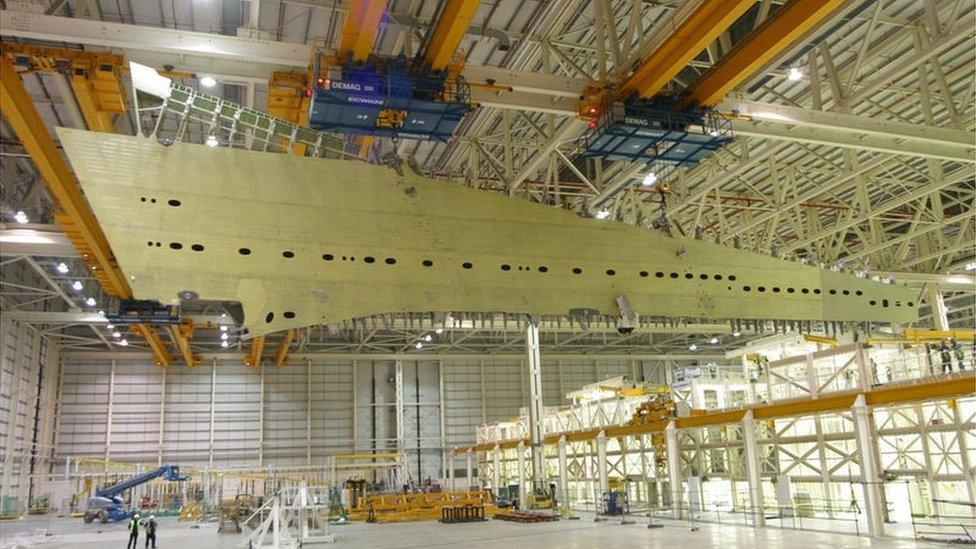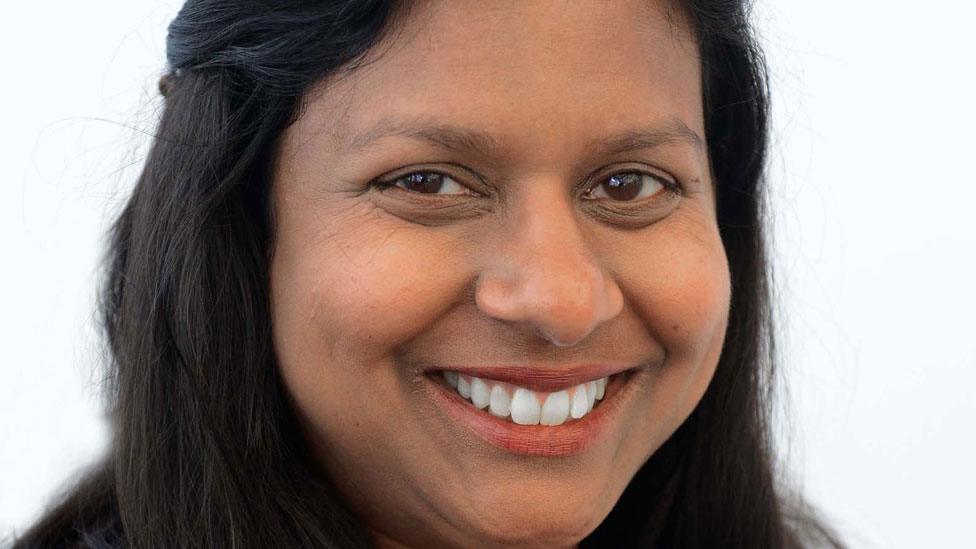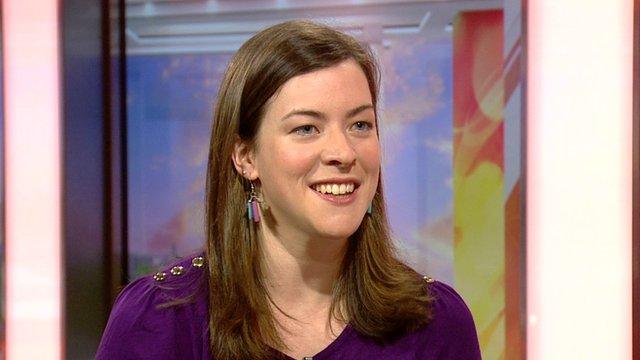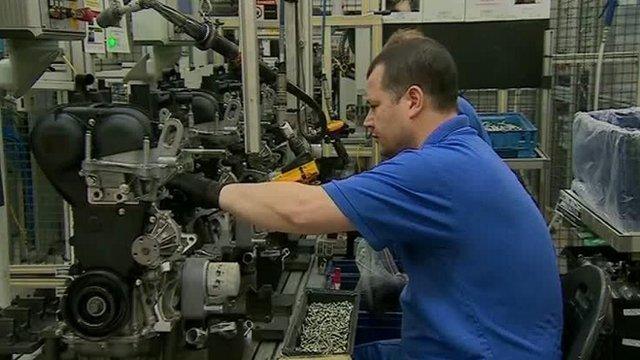'Critical shortage' of women in science jobs, report finds
- Published

More women are needed in science jobs as a "critical shortage" is hampering Wales' future economic growth, a report has said.
The report for the Welsh government is seeking ways to get more women into Stem (science, technology, engineering and maths) roles.
Research found a shortfall of 600 Stem academic roles could be filled by having more women in relevant careers.
Across the UK, extra female scientists could be worth £2bn to the economy.
The report has been released on International Women's Day.
Entitled Talented Women for a Successful Wales, it identified the need to change attitudes across society to create the workforce necessary for future economic growth.
Relatively few girls were found to study Stem subjects at post-16 level and the report suggested recruiting more women into the workforce as graduates, through apprenticeships and other routes.
It also found women with a Stem degree were less likely to pursue a career in their area of expertise than men.
Recommendations included:
Teachers with more science skills to enthuse pupils
Stronger links between education and businesses
Access to female role models
Challenging gender stereotypes
"Keeping in touch" strategies for women returning from maternity leave
Confronting unconscious bias at selection and career progression
Increasing women at all levels in academia, industry and commerce to 50:50 by 2020
Removing the gender pay gap
Prof Julie Williams, chief scientific advisor to the Welsh government, said: "The lack of women in Stem professions matters for their individual life chances as they are missing out on many well-paid and rewarding jobs.
"More broadly, however, it limits the talent available to our science base and businesses and is therefore a constraint on Wales' future economic prosperity."
She said she would review the report and work with the government on a formal response over the summer.
Report co-author Prof Karen Holford, pro-vice chancellor of Cardiff University, added: "Women are outperforming men in education overall yet, still, more of them work in jobs requiring skills below their educational level.
"They are significantly under-represented in the Stem workforce; this is a waste of knowledge and talent."


Lorraine McIlree assumed she would follow family members into accounting owing to her love of maths and chose the subject as well as chemistry and physics to study at A-level.
But a visit by members of the Institute of Mechanical Engineers to her college made her reconsider which course she would pursue at university.
"They said if I was thinking of maths, why not engineering? If I studied engineering I would have all the same options as if I studied maths, but it would keep my options open," she said.
Ms McIlree duly took a degree in mechanical engineering at Bristol University, and on graduating applied for jobs in that field as well as in finance.
"I choose the engineering route, and I haven't looked back," she said.
She started working on actuators [motors] for military aircraft before moving to Airbus in 2001, where over the years she has worked on landing gear systems, airworthiness and now is part of the chief engineer's team, working on the A380 aircraft, whose wings are made at Broughton in Flintshire.

What is International Women's Day?
International Women's Day, external has been held on 8 March every year since 1913, and has been recognised by the United Nations since 1975.
The UN says it's a time to reflect on progress made, to call for change and to celebrate acts of courage and determination by ordinary women who have played an extraordinary role in the history of their countries and communities.
The theme of this year's day is "Planet 50-50 by 2030" - aiming to achieve global equality in areas such as education and end all forms of discrimination.
Read more on International Women's Day

- Published29 November 2015

- Published12 January 2015

- Published5 March 2015

- Published7 April 2014
